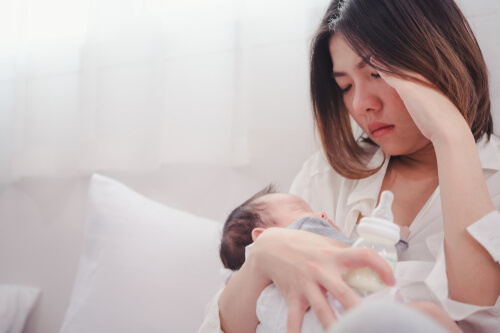When it comes to postpartum depression, it can be a bit tricky to detect at times since the symptoms might be shrugged off as something less severe such as exhaustion or work-related stress. However, there are actually some telltale signs that you’re struggling with postpartum depression. Of course, the main one is that the symptoms only manifested after giving birth to your baby, but there are other factors to consider.
As with all mental health issues, there are many angles to consider here. We’re going to take a brief look at some of the most common symptoms that you may encounter when struggling with postpartum depression so that you can diagnose the problem early and get the treatment that you need to move past it then finally move on with your life. Without further adieu let’s get right into the top 14 symptoms to look out for.
1. Baby Blues
One of the hardest things to do can be to distinguish between baby blues and postpartum depression. The two are erroneously used synonymously despite the fact that the latter is far more serious and requires actually treatment whereas the former usually subsides over time. In the first two weeks after your baby is born, it’s very common for mothers to find a dip in their mood and overall be less happy about their life.
After the first two weeks, most mothers will find that their mood is back to normal for the most part. If you still find the sadness lingering beyond the initial two weeks then that could be a sign that you need to speak to an expert. This also applies if the feelings become more intense over time, sometimes to the point of hopelessness. Be sure to check up on yourself constantly during the first month so you can keep track of your progression.



